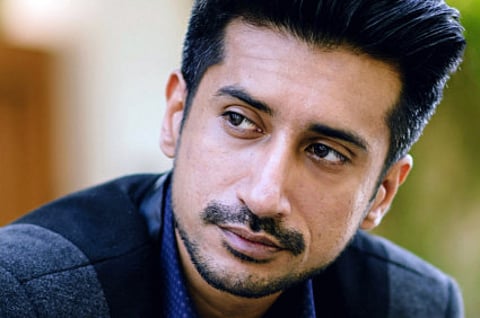Reham Khan slams ‘Cake’ as Pakistan’s Oscar entry
Prime minister Imran Khan’s former wife accuses film of having a political advantage

If there is one Pakistani film that has earned critical acclaim along with box office profits, it is debutant director Asim Abbasi’s Cake.
Released early this year, the feature that boasts an all-TV cast such as Aamina Shaikh, Sanam Saeed, Adnan Malik, Mohammad Ahmad and Beo Ranaa, raised the bar for filmmaking in terms of its unconventional subject matter and, equally importantly, a fidelity to content that we haven’t seen on big screen since, perhaps, Mehreen Jabbar’s Ramchand Pakistani (2007).
It’s no wonder then that Cake was selected by Pakistan’s Oscar Selection Committee for consideration in the Best Foreign Language Film category at the 91st Academy Awards scheduled to take place in LA on February 24, 2019.
However, as soon as the announcement came, it was snubbed by Reham Khan, the former wife of cricketer-turned-Pakistan prime minister Imran Khan. The controversial author seemed to have found some connection between Cake’s nomination and its producer Zulfikar Bokhari’s appointment as special assistant to Khan on overseas Pakistani’s affairs.
Her tweet — “Who says you can’t have your ‘cake’ & eat it too? Zulfi Bokhari friend of the PM now gets his film selected to be sent in as Pakistan’s entry to the Oscar’s too” — not only offended those who loved the film, it also forced an otherwise reticent writer-director Abbasi to respond: “Erm. I understand that our storytelling (unlike her storytelling) lacked nautanki [drama] and masala but still... what a strange insinuation discounting our hard work and committee’s decision making.”
For the uninitiated, the said committee is chaired by two-time Oscar and Emmy-winning documentary filmmaker Sharmeen Obaid-Chinoy. Its members include British-Pakistani novelist Kamila Shamsi (whose last book, Home Fire, was longlisted for the Man Booker Prize 2017); veteran TV actress and director Sahira Kazmi; writer H M Naqvi; musician and author Ali Sethi; and cultural critic Nadeem Farooq Paracha. Shamsie is even quoted as commenting on the film: “Beautifully filmed, acted and written, Cake is both layered and affecting — and it’s even better on second viewing.”
For his part, Abbasi didn’t take their Twitter war beyond a single tweet, and went on instead to relate what he called “a backstory” to why he feels indebted to his producer: “In 2016, when I showed the script of Cake to one of the leading TV channels in Pakistan, they laughed me out of their offices. That is when Zulfi came in to help me produce it with one condition: ‘make a film that we can be proud of’.”
Sign up for the Daily Briefing
Get the latest news and updates straight to your inbox


